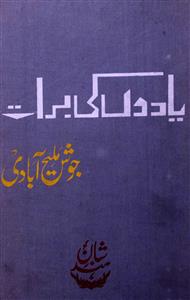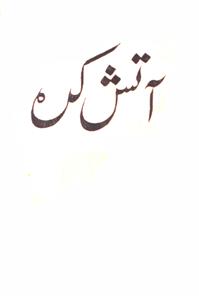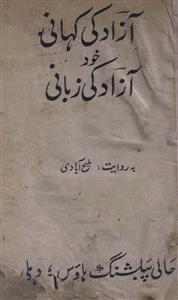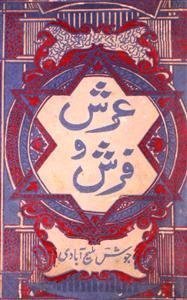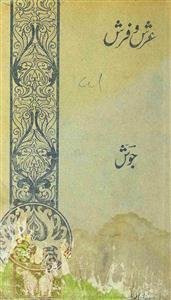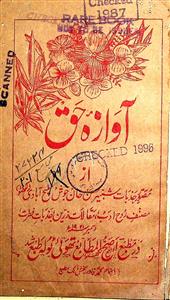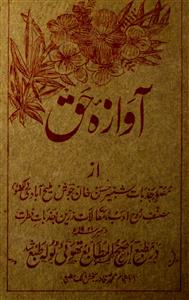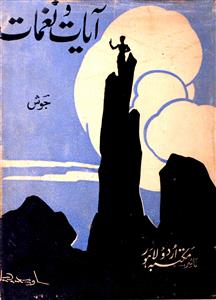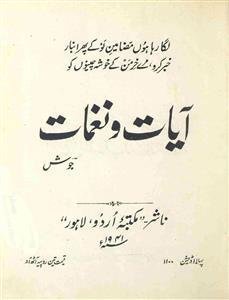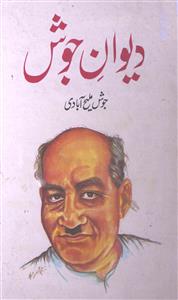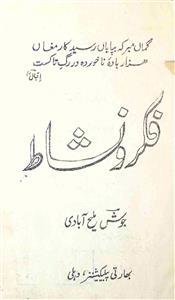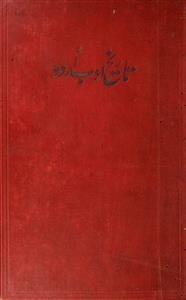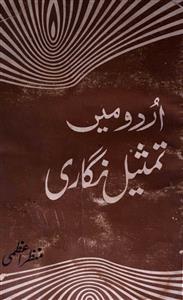 For any query/comment related to this ebook, please contact us at haidar.ali@rekhta.org
For any query/comment related to this ebook, please contact us at haidar.ali@rekhta.org
About The Book
"یادوں کی برات" جوش ملیح آبادی کی نثری کاوشوں کا ثمرہ ہے ۔ یہ ایک عظیم شاعر انقلاب و فطرت کی خودنوشت ہے ۔ یہ آپ بیتی ایک تاریخ ساز عہد کی تہذیبی و تمدنی زندگی کا دلکش مرقع ہے ۔ اس میں وادی گنگ و جمن کے اور سرزمین دکن کے قدیم معاشرے کی خوشنما جھلکیاں نظر آتی ہیں ۔ مصنف نے اپنے ایام بچگی و جوانی کے خوش حال طبقوں کی سماجی قدروں پر، ان کے سوچنے اور محسوس کرنے کے انداز پر ، ان کے عقیدے اور توہمات پر ، ان کے شوق و مشغلوں پر ، ان کے تہواروں اور تقریبوں پر، ان کے رہن سہن و رسومات پر بڑے دلچسپ تبصرے کئے ہیں۔ یادوں کی برات ، جوش ملیح آبادی کے ستر سالوں کے تجربے اور مشاہدے کی برات ہے۔ اس میں فکر و نشاط اور جنون و حکمت کے زمزمے گونجتے ہیں ۔پری پیکر اور لالہ رخوں کے لب و عارض کی دلنشین حکایتیں بیان ہوتی ہیں ۔الغرض یہ کتاب ہر طریقے سے اپنی تہذیبی و تمدنی ورایات کو برقرار رکھتے ہوئے قاری کے دل کو فرحت و مسرت بخشتی ہے اور قاری اس عہد کی سیر کرتا ہوا نظر آتا ہے جس میں یہ کتاب تحریر کی گئی۔ اسے جوش ملیح آبادی کی متنازعہ تخلیق بھی سمجھا جاتا ہے۔ اس کتاب میں جوش کے لاتعداد معاشقوں کی وجہ سے اسے تنقید کا سامنا رہا۔ زبان پر عبور کی وجہ سے مشہور جوش نے یقینی طور پر خوبصورت اور منفرد خود نوشت سوانح عمری لکھی کہ پڑھنے والا ان کی ابتدائی زندگی کے واقعات اور ماحول کی منظر کشی میں ڈوب جاتا ہے۔بلاشبہ، یادوں کی بارات اردو میں لکھی گئی خود نوشت سوانح عمریوں میں سب سے دلچسپ ہے۔
About The Author
Sahbbir Hasan Khan (1898-1982), better known as Josh Malihabadi, was born in a family of feudal masters at Malihabad near Lucknow. After receiving his initial instructions in conventional subjects at home, he continued his education in snatches at several places like Sitapur, Lucknow, Agra, and Aligarh. Following his father’s death and the attendant issues emerging thereafter, he had to discontinue his education. In 1924, he left for Hyderabad to join Dar-ul-Tajuma, Osmania University’s bureau of translation. Following a controversy, he had to leave this institution and return to his native place. In 1936, he started publishing a journal called Kaleem from Delhi which ran for three years. In 1941, he joined Shalimar Pictures at Poona and wrote lyrics for films. In 1948, he was appointed editor of Aajkal, a literary journal published by the Ministry of Information and Broadcasting, Government of India and worked there for eight years. In 1956, he migrated to Pakistan where he was appointed as literary advisor of Urdu Board. He travelled to India in 1967 and gave an interview in Bombay which led to his losing job in Pakistan. Josh breathed his last in Islamabad where he was buried.
Carrying forward the legacy that he inherited from his great grandfather, grandfather and father, Josh started writing poetry at an early age. He was labelled as a poet of revolution because of his thematic concerns and his grandiloquence. He is notable among the Urdu poets for his acute socio-political concerns on the one hand and romantic preoccupations on the other. For expressing himself with conviction, he developed an exclusive kind of charged diction and a new set of implicated metaphors. These qualities imparted an element of uniqueness to his poetry. Josh published several collections of his poetry which include Rooh-e-Adab, Shaayer ki Raatein, Naqsh-o-Nigar, Shola-O-Shabnam, Fikr-O-Nishat, Junoon-O-Hikmat, Harf-O-Hikaayat, Aayaat-O-Naghmaat, Arsh-O-Farsh, Raamish-O-Rung, Sumbul-O-Salaasil, Saif-O-Suboo, Surood-O-Kaharosh, Sumoom-O-Sabaa, Tulu-i-Fikr, Qatra-O-Qulzum, and Nawaaredaat-e-Josh. He also wrote in prose. His prose works include Nujoom-O-Jawahar, Mauja-i-Fikr, Auraaq-e-Sahar, Ilhaam-O-Maqaalaat-e-Zarreen, and Ishaaraat. Josh’s autobiography, Yaadon ki Baraat, created lots of interest among his readers, and it keeps them curious even now.
 For any query/comment related to this ebook, please contact us at haidar.ali@rekhta.org
For any query/comment related to this ebook, please contact us at haidar.ali@rekhta.org
